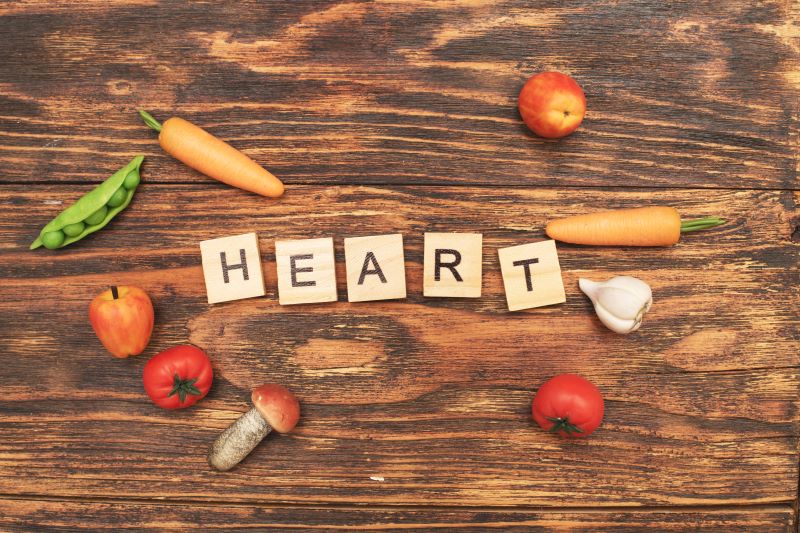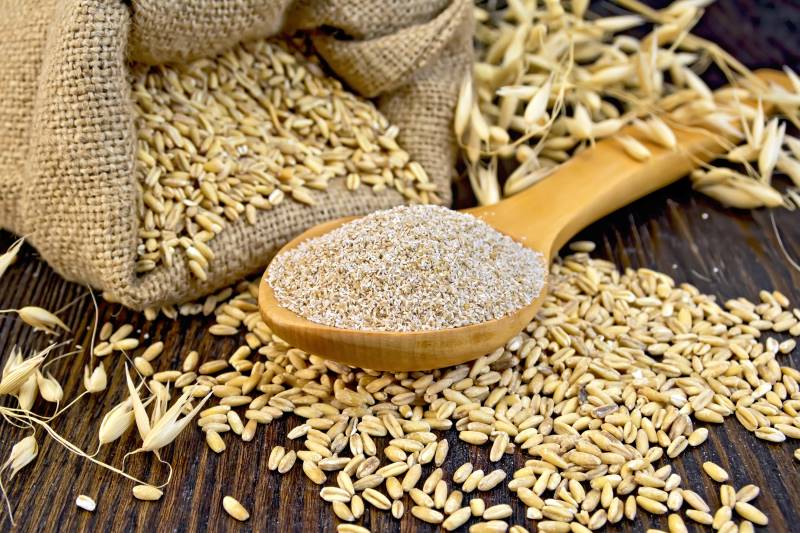30 Best Foods for the Heart for Faster Recovery

Overcoming symptomatic conditions related to the heart comprises medicine solutions and diet recommendations. Working with hereafter foods can enhance the recovery process and boost heart function.
Incorporating the right food for your heart that promotes wellness but also aids in expediting the recovery process. This comprehensive exploration delves into the top foods renowned for their cardiovascular benefits. Offering insights into their nutritional value and impact on heart health.

Table of Contents

Why is it Important to Have a Healthy Heart?
Maintaining a healthy heart is crucial for overall well-being and longevity. A healthy heart ensures proper blood circulation, delivering oxygen and nutrients to vital organs. It reduces the risk of cardiovascular diseases such as heart attacks and strokes, which can be life-threatening.
A healthy heart supports physical activity, allowing you to lead an active lifestyle without limitations. It promotes mental well-being, as adequate blood flow to the brain supports cognitive function and emotional health. Additionally, a healthy heart contributes to a better quality of life and longevity.
30 Best Foods for Heart
Healthy eating implies nourishing your body with food rich in nutrients that help your cardiovascular functioning. Leafy greens like spinach and kale, multivitamins, and minerals are essential sources of antioxidants. Hence, their support for heart function is among the leading contenders.
In addition, consuming nuts, seeds, whole grains, and legumes is good news for the cardiac system and can help with recovery.
Nevertheless, here are some food suggestions to add to the diet for heart and their nutritional values:
List of Fibre-Rich Vegetables for Heart

Promote heart health with these fiber-rich vegetables, essential for cardiovascular well-being. Including them in your diet supports digestion and reduces the risk of heart disease.
SNo. |
Vegetables | Description | Amount of Fibre (per 100 g) |
| 1 | Carrot | Crunchy and sweet, rich in beta-carotene, great for heart health. | 2.8 g |
| 2 | Bell Pepper | Colourful and versatile, high in vitamin C, aids heart function. | 2.1 g |
| 3 | Beet | Earthy and vibrant, loaded with antioxidants, supports heart health. | 2.8 g |
| 4 | Boiled Potato | Comforting and filling, a source of potassium, promotes heart health. | 2.2 g |
| 5 | Artichokes | Contains prebiotic fibre and antioxidants. | 5.4 g |
List of Fibre-Rich Fruits for Heart

Boost heart health with these fibre-rich fruits and juices. Packed with essential nutrients, they support cardiovascular function and overall well-being.
SNo. |
Fruits | Description | Amount of Fibre (per 100 g) |
| 6 | Avocado | High in healthy fats, potassium, and fibre. | 6.7 g |
| 7 | Guava | Rich in vitamin C, antioxidants, and dietary fibre. | 5.4 g |
| 8 | Oranges | Excellent source of vitamin C and dietary fibre. | 2.4 g |
| 9 | Kiwi | Packed with vitamin C, vitamin K, and dietary fibre. | 3 g |
| 10 | Mango | Rich in vitamins A and C, and dietary fibre. | 1.6 g |
| 11 | Papaya | Contains vitamin C, antioxidants, and digestive fibre. | 1.8 g |
List of Dairy Products and Nuts for Heart
Enhance heart health with these fibre-rich dairy products and nuts. Packed with essential nutrients, they support cardiovascular function and overall well-being.
SNo. |
Dairy Products and Nuts | Description | Amount of Fibre (per 100 g) |
| 12 | Almonds | High in healthy fats, protein, and fibre. | 12.5 g |
| 13 | Walnuts | Rich in omega-3 fatty acids and antioxidants. | 6.7 g |
| 14 | Pistachios | Contains heart-healthy fats and fibre. | 10.3 g |
| 15 | Chia Seeds | Packed with omega-3 fatty acids and fibre. | 34.4 g |
| 16 | Flaxseeds | High in fibre, omega-3s, and lignans. | 27.3 g |
| 17 | Greek Yogurt | High in protein and probiotics, with some fibre. | 0.4 g |
| 18 | Cottage Cheese | Protein-rich dairy with a small amount of fibre. | 14 g |
List of Fibre Rich Vegetarian Food for Heart

Enhance heart health with these fiber-rich vegetarian foods. Packed with essential nutrients, they support cardiovascular function and overall well-being.
SNo. |
Food | Description | Amount of Fibre (per 100 g) |
| 19 | Cooked Spaghetti and Whole-Wheat | Whole-grain pasta packed with fibre and nutrients. | 6.0 g |
| 20 | Cooked Barley | Nutrient-dense grain known for its heart-healthy fibre. | 6.0 g |
| 21 | Bran Flakes | Fortified cereal provides a high-fiber breakfast option. | 5.5 g |
| 22 | Cooked Quinoa | Protein-rich grain with significant fibre content. | 5.0 g |
| 23 | Oat Bran Muffin | Homemade muffins packed with fibre and whole grains. | 5.0 g |
List of Non-Vegetarian Foods for Heart

Elevate heart health with these protein-rich, non-vegetarian foods. Packed with essential nutrients, they support cardiovascular function and overall well-being.
SNo. |
Food | Description | Amount of Protein (per 100 g) |
| 24 | Chicken Breast | Lean source of protein, low in saturated fat. | 31 g |
| 25 | Turkey | Rich in lean protein and essential nutrients. | 29 g |
| 26 | Lean Beef | Provides iron, zinc, and high-quality protein. | 36 g |
| 27 | Tuna | Excellent source of protein and omega-3s. | 30 g |
| 28 | Eggs | Complete protein, rich in vitamins and minerals. | 13 g |
| 29 | Shrimp | Low in calories and high in protein. | 24 g |
| 30 | Cod | High in protein and low in fat. | 17 g |
Causes of Heart Problems
Analysing disease origins in the heart is key for predicting its further development. Here's an overview:
- Poor Diet: A diet lacking essential nutrients for optimal health and function often includes excessive processed foods high in sugar, salt, and fats. Consuming such a diet increases the risk of various health problems.
- Lack of Physical Activity: Insufficient physical activity can lead to various health complications and risks. Sedentary lifestyles contribute to weight gain, muscle loss, and decreased flexibility.
- Smoking: Smoking is a significant risk factor for heart disease, increasing the likelihood of conditions like coronary artery disease and heart attacks. The chemicals in tobacco smoke damage blood vessels.
- High Blood Pressure: High blood pressure strains the heart by forcing it to pump harder, leading to thickened heart muscle and narrowed arteries. Over time, this can result in conditions like coronary artery disease, heart attack, and stroke.
- Genetics: Genetics play a significant role in determining individual traits and predispositions. Inheritance patterns dictate various aspects of physical and biological characteristics.
Symptoms of Heart Problems
Knowing heart ailment signs is vital so that people have enough time to treat the condition and be cured. Here are some common signs to watch for:
- Chest Pain: Chest pain can indicate various underlying health conditions, some serious. Seek immediate medical attention if experiencing chest pain or discomfort. It could be a symptom of heart problems, so don't ignore it.
- Shortness of Breath: Shortness of breath can indicate various underlying health conditions or triggers. It may result from respiratory issues, heart problems, or anxiety episodes.
- Fatigue: Fatigue can stem from various factors affecting physical and mental health. Inadequate sleep contributes significantly to feelings of exhaustion and tiredness. Chronic stress can also deplete energy levels, leading to persistent fatigue.
- Irregular Heartbeat: Irregular heartbeat, or arrhythmia, can indicate underlying heart conditions or other issues. Symptoms may include palpitations, dizziness, and shortness of breath.
- Dizziness: Dizziness can result from various factors, including inner ear disturbances. Low blood sugar levels often cause dizziness, especially when standing suddenly.
Symptoms of heart problems vary but often include chest pain or discomfort. Shortness of breath, fatigue, and dizziness may also indicate cardiac issues. If experiencing these symptoms, seek medical attention promptly for proper diagnosis.
How to Maintain a Healthy Diet for the Heart?
A good diet serves as a precondition for maintaining a healthy heart. Here's how you can achieve that:
- Focus on Whole Foods: Emphasising whole foods offers numerous health benefits and nutritional advantages. These foods are minimally processed and rich in essential nutrients and fibre.
- Limit Processed Foods: Reducing processed food intake significantly benefits overall health and well-being. These foods often contain high levels of unhealthy fats, sugars, and additives.
- Watch Portion Sizes: Monitoring portion sizes is essential for maintaining a healthy weight balance. Overeating can lead to weight gain and various health issues over time.
- Reduce Sodium Intake: Reducing sodium intake is crucial for maintaining overall health and wellness. Excessive sodium consumption can lead to high blood pressure and cardiovascular issues.
- Moderate Alcohol Consumption: Moderate alcohol consumption has potential health benefits, including improved heart health. It may also reduce the risk of certain diseases like diabetes and dementia.
Maintaining a healthy diet for the heart is crucial. Prioritise whole foods, limit processed options and stay mindful of portions. Consistency in making heart-healthy choices is key to long-term well-being.
10 Food Items to Avoid When Suffering from Heart Problems

When dealing with heart issues, being mindful of what you eat is crucial. Here are ten food items to avoid:
SNo. |
Food Item | Reasons to Avoid |
| 1 | Processed Meats | High in saturated fats and sodium, linked to heart disease. |
| 2 | Sugary Drinks | Contribute to weight gain, diabetes, and heart disease. |
| 3 | Trans Fats | Raise bad cholesterol levels, increasing heart disease risk. |
| 4 | Fried Foods | High in unhealthy fats and can lead to weight gain. |
| 5 | Excess Salt | Raises blood pressure, increasing the risk of heart problems. |
| 6 | Processed Snacks | Loaded with unhealthy fats, sodium, and additives. |
| 7 | High-Sugar Desserts | Increase inflammation and contribute to heart disease. |
| 8 | White Bread | Lacks fibre and nutrients and can spike blood sugar levels. |
| 9 | Full-Fat Dairy | High in saturated fats, linked to heart disease risk. |
| 10 | Fast Food | Typically high in unhealthy fats, sodium, and calories. |
Hence, incorporating a diet rich in fibre, hydration, and probiotics while avoiding these ten culprits can help manage constipation effectively.
Side Effects of an Unhealthy Diet for Heart
An unhealthy diet can significantly impact heart health, increasing the risk of cardiovascular diseases. Here are some side effects of an unhealthy diet for the heart:
- High Blood Pressure: High blood pressure, or hypertension, increases the risk of heart disease. Lifestyle changes, such as exercise and reducing sodium intake, can help manage it.
- High Cholesterol Levels: High cholesterol levels pose serious health risks and may lead to cardiovascular problems. It's essential to monitor cholesterol levels regularly through blood tests.
- Obesity: Obesity is a medical condition characterised by excessive body fat accumulation. It poses significant health risks, including heart disease, diabetes, and joint problems.
- Inflammation: Consuming processed foods, sugary drinks, and unhealthy fats can promote inflammation in the body. Contributing to the development and progression of heart disease.
Selecting the right foods for heart health is paramount for a swifter recovery. By incorporating a balanced diet rich in nutrients like omega-3 fatty acids, antioxidants, and fibre. Individuals can support their heart's well-being and aid in the recovery process. Prioritise fatty fish, fruits, vegetables, whole grains, and nuts. They can contribute to overall heart health and expedite recovery from cardiovascular issues.













